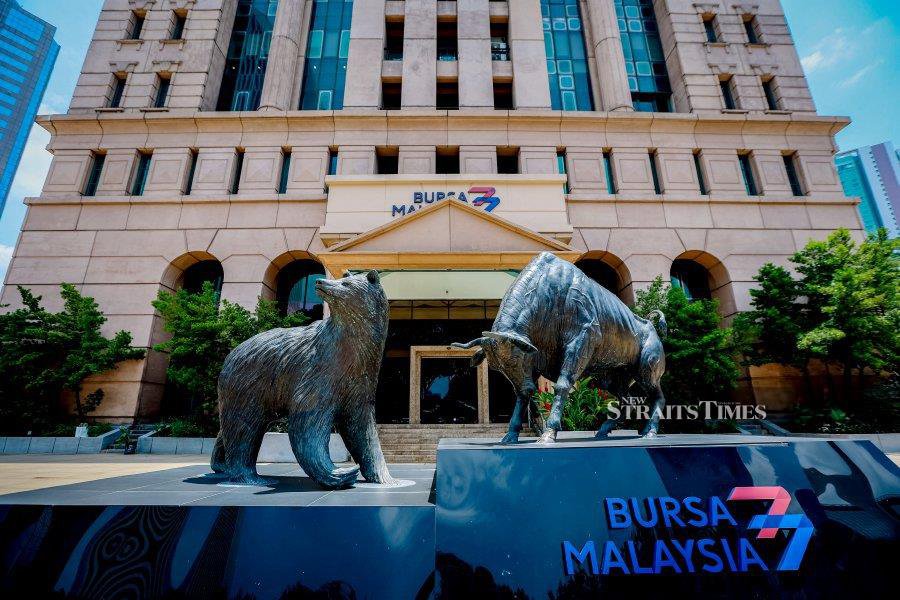KUALA LUMPUR: Bursa Malaysia ended the midday session in negative territory as selling pressure pushed stocks lower across the board.
At 12:35 pm, the FTSE Bursa Malaysia KLCI (FBM KLCI) dropped by 0.12 per cent, or 2.01 points, to 1,613.39, down from Tuesday's close of 1,615.40.
The broader market was weak, with 534 decliners outnumbering 476 gainers, while 461 counters remained unchanged.
Malacca Securities Sdn Bhd said the overall trading environment will return to fundamentals after a busy corporate earnings season in May.
"We believe the Technology sector has bottomed in their earnings and may chart new territories going forward with the rising investments within the data centre, artificial intelligence (AI) and cloud services themes, translating to potential trading opportunities within hard disk drive (HDD), hardware suppliers and cyber securities segments under the Technology sector," it said.
On the commodity market, Malacca Securities noted that Brent oil further declined below US$78 as the US data signals a cooling economic environment.
"The crude palm oil (CPO) violated below RM4,000 despite stronger recovery from China after pricing in weakness in Dalian contracts and softer crude oil prices weighing on the CPO market," it said.
Meanwhile, Hong Leong Investment Bank (HLIB) research indicated that the FBM KLCI is expected to revisit its year-to-date high of 1,632 in the short term.
"This outlook is supported by strong first quarter 2024 (1Q24) results, positive technical indicators, and growing expectations for global policy easing."Additionally, a more stable ringgit, clearer policy frameworks to attract higher value-added foreign direct investments, including trends like China + 1, and political stability that supports economic and fiscal reforms aimed at long-term growth and competitiveness are contributing factors," it said.
HLIB Research anticipates a strong resistance in the 1,650-1,675 range after the index has risen 79.3 points or 5.2 per cent in the second quarter to date and 160.7 points or 11.1 per cent year-to-date.


